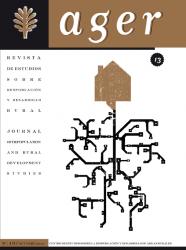Collectivization and the transfer of soft capital in two life stories from Hungary
Resumen
Through the analysis of two life stories of former peasants who had experienced collectivization in the early sixties in Hungary the paper sets focus on personal strategies of handling the trauma of societal transitions. Firstly, with help of social and cultural capital theories the importance of what Bourdieu named the transubstantiation of immaterial assets is explored in the process of adaptation from one system to the other. Secondly, the paper elucidates how these survival strategies constitute key elements of self-representations and which kind of meanings are attached to the collectivization experience in the personal life story. Following Gergen’s distinction between the plot and the story, the paper elaborates narrative constructions of the representations of self. Emphasis is placed on how the representations allow the narrator to reinstate self-respect through positioning the self in the traumatic event of collectivization. Realistic and constructivist approaches are combined utilizing life story analysis. The two cases represent gender- and class-specific polarities characterizing diversities of the collectivization experience.
Publicado
Cómo citar
Número
Sección
Licencia
Aquellos autores/as que tengan publicaciones con esta revista, aceptan los términos siguientes:
- Los autores/as conservarán sus derechos de autor y garantizarán a la revista el derecho de primera publicación de su obra, el cuál estará simultáneamente sujeto a la Licencia de reconocimiento de Creative Commons que permite a terceros compartir la obra siempre que se indique su autor y su primera publicación esta revista.
- Los autores/as podrán adoptar otros acuerdos de licencia no exclusiva de distribución de la versión de la obra publicada (p. ej.: depositarla en un archivo telemático institucional o publicarla en un volumen monográfico) siempre que se indique la publicación inicial en esta revista.
- Se permite y recomienda a los autores/as difundir su obra a través de Internet (p. ej.: en archivos telemáticos institucionales o en su página web), lo cual puede producir intercambios interesantes y aumentar las citas de la obra publicada. (Véase El efecto del acceso abierto).

